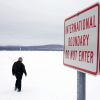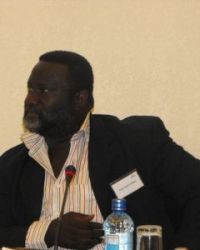Kojo Opoku Aidoo
A son of a British trained Ghanaian Police Ofiicer, I grew up traveling all over Ghana as the family accompanied my Dad anytime he was transferred by the Ghana Police Force. So, at the early age of ten I spoke three Ghanaian languages, had developed a national outlook, and always sought to deepen my contextual knowledge. After my bachelor's, I engaged in the most adventurous of moves - whilst waiting for a University of Ghana scholarship to Carlton University, Canada to study Development Administration, I literally picked up my bags and left for Moscow, in the then USSR, to study Political Economy at the Institute of Social Science, having been offered the chance by the then military government headed by Jerry John Rawlings. My stay in Moscow completed my metamorphosis from the local, to the national, and to the international. My universities, both of life and academy, thus moulded me into a Pan Africanist, internationalist scholar. I also embarked on a personal journey of decolonization. So, I changed my name from 'Thomas Maxwell Aidoo' (which reflected my Catholic and westernized self) to 'Kojo Opoku Aidoo' (which reveals my authentic African self). By the time I enterd the world of work, I was persuaded, as did Paulo Coelhlo in his Alchemist, that "when you want something, all the universe conspires in helping you to achieve it". I took up an academic career, first at the Institute of Development Studies, University of Cape Coast and after a year, characteristic of my venturesome nature, I re-located to my alma mater, University of Ghana.
“What is a political scientist doing at an Institute of African Studies?” I asked myself, when I first joined the University of Ghana about two decades ago after my doctoral studies. I was well versed in thematic studies, but untaught in area studies. To fit in, to extricate myself from this lopsidedness, I had to adjust. Without a sufficient comprehension of the African condition, and not wanting to remain defectively informed, I decided to “discover” the African continent. This “discovery” has taken me to Libya, Ivory Coast, Algeria, Nigeria, Burundi, Rwanda, Senegal, Ethiopia, Mali, Burkina Faso, Cape Verde, Cameroon, Benin, Tanzania, Togo, Mozambique, South Africa, Kenya and Morocco, presenting conferences papers and attending political meetings. During these visits I paid close attention to the complex power structures, the autopoietic systems, the configuration of ethnicities, alienation, colonial borders, cross border migrations and pan-African proclivities. I realize that cross-border mobilities tend to pose challenges to the establised colonial borders, the nation-state, xenophobia, and genocide, but also trigger embryonic grassroots pan-Africanism, which I find enthralling. I have therefore been researching, publishing, teaching and supervising graduate theses in these areas.
As Core Researcher of the Ghana Country Project, as part of the IIAS-Mellon Program “Humanities across Borders: Asia and Africa in the World”, I am focusing the project agenda on memory practices, and partner with selected communities to co-create knowledge on migration and grassroots pan-Africanism, past, contemporary and future. The Ghana project revisits and explores issues of memory, migration, deterritoriality, identity and new ways of pan-Africanism. The project would lead to co-creation of knowledge and the production of teaching materials based on new pedagogical frameworks. For my university, the Humanities across Borders Program is an act of 'revolution'. The biggest challenge is getting an encyclopedic university as the University of Ghana to buy into the new, pioneering, humanistic pedagogical model. But, as pointed out above, 'when you want something, all the universe consipires in helping you to achieve it"!











